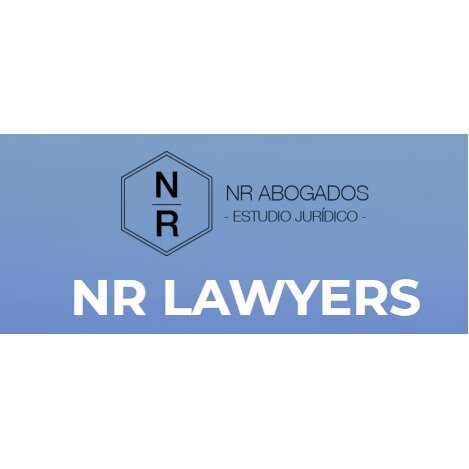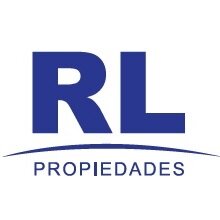Best Sanctions & Export Controls Lawyers in Argentina
Share your needs with us, get contacted by law firms.
Free. Takes 2 min.
Or refine your search by selecting a city:
List of the best lawyers in Argentina
About Sanctions & Export Controls Law in Argentina
Sanctions and export controls in Argentina refer to the legal measures and regulations the country uses to control the export, transit, and use of goods, services, and technologies. These laws apply to both domestic and foreign entities and are governed by international agreements, national statutes, and regulations. Argentina implements these controls to fulfill its international obligations, protect national security, prevent the proliferation of weapons, and support foreign policy objectives. Businesses and individuals involved in cross-border transactions must be aware of these rules to avoid penalties and ensure lawful operations.
Why You May Need a Lawyer
Seeking legal help in the area of sanctions and export controls is crucial due to the complexities and potential risks involved. Common situations where legal assistance is needed include:
- Exporting goods or technology from Argentina to sanctioned countries or individuals
- Navigating customs and export documentation requirements
- Complying with embargoed or restricted items lists
- Investing in industries subject to export restrictions
- Entering joint ventures or contracts with foreign partners
- Conducting internal audits for compliance
- Responding to government investigations or enforcement actions
- Assessing the risk of penalties or reputational damage
- Understanding amendments to local or international regulations
Lawyers with expertise in this field help businesses and individuals identify legal risks, navigate regulatory frameworks, respond to official queries, and prevent violations that could result in severe financial and criminal penalties.
Local Laws Overview
Argentina’s sanctions and export controls framework is shaped by various national laws and commitments to international treaties. Key aspects include:
- National Legislation: Argentina’s Penal Code and Law 26.734 address issues like terrorism financing, while customs codes regulate export controls and enforcement. There are additional decrees and regulations focused on dual-use goods, technology transfer, and sensitive materials.
- International Commitments: Argentina is a member of the United Nations, participates in the Financial Action Task Force (FATF), and follows restrictions set by the UN Security Council. The country has also adopted guidelines from the Wassenaar Arrangement, which addresses export controls on conventional arms and dual-use goods and technologies.
- Key Export Control Areas: These include arms and defense-related products, sensitive or dual-use technologies, chemicals, and goods that could be used in weapons proliferation.
- Enforcement Authorities: The National Customs Administration (Dirección General de Aduanas), the Ministry of Foreign Affairs, and the Financial Intelligence Unit (Unidad de Información Financiera) oversee compliance, licensing, and enforcement.
Companies and individuals must ensure products and technologies are not sold to restricted countries, individuals, or entities, and that all required licenses and permits are secured before conducting transactions. Violations can result in administrative, civil, or criminal penalties, including substantial fines and imprisonment.
Frequently Asked Questions
What are export controls in Argentina?
Export controls in Argentina are legal measures that regulate the export of certain goods, technology, or services from the country, primarily for reasons related to national security, foreign policy, or international obligations.
Who is responsible for enforcing export controls?
The National Customs Administration, Ministry of Foreign Affairs, and Financial Intelligence Unit are the primary authorities overseeing enforcement, licensing, and compliance of export controls and sanctions in Argentina.
Which goods are most commonly subject to export controls?
Typical goods include arms and military equipment, dual-use items (civilian goods with potential military applications), chemicals, advanced technologies, and goods that could contribute to weapons of mass destruction.
How does Argentina implement international sanctions?
Argentina upholds United Nations Security Council sanctions and may implement additional national measures based on foreign policy interests, international treaties, and domestic legislation.
Do I need a license to export controlled goods?
Yes, individuals or companies intending to export listed goods, technologies, or services often need to obtain a specific license or permit from the relevant authorities before proceeding.
What are the penalties for violating export controls?
Penalties may include seizure of goods, fines, loss of export privileges, and criminal charges that could result in imprisonment depending on the severity of the violation.
Are there restrictions on exporting to certain countries?
Yes, exports to countries subject to international sanctions, embargoes, or additional local controls may be prohibited or require additional authorization.
Can a lawyer help with compliance programs?
Lawyers can assist in designing and implementing compliance programs, conducting internal audits, providing training, and advising on best practices to ensure adherence to Argentine laws and avoid violations.
How can I find out if my product is restricted?
Check the lists published by the National Customs Administration, review your product’s specifications, and consult legal or regulatory experts to determine classification and licensing requirements.
What should I do if I am under investigation for export control violations?
It is crucial to seek immediate legal counsel. A lawyer can guide you through the investigation, represent your interests, help you respond to official requests, and work toward resolving the issue in accordance with the law.
Additional Resources
If you need further information or support, consider the following Argentine resources:
- National Customs Administration (Dirección General de Aduanas): Offers regulations, controlled goods lists, and export licensing procedures.
- Ministry of Foreign Affairs, International Trade and Worship: Oversees the application of international sanctions and foreign policy guidelines related to trade.
- Financial Intelligence Unit (Unidad de Información Financiera): Monitors financial transactions for anti-money laundering and counter-terrorism financing.
- Chambers of Commerce and Export Associations: Offer practical guidance and updates on changing regulations.
- Legal professionals and law societies: Provide legal assistance, referrals, and educational resources on export controls and sanctions.
Next Steps
If you believe your export transaction, product, or business activities may be subject to Argentine sanctions or export control laws, take the following steps:
- Identify your product or service and determine if it appears on any restricted or controlled lists.
- Contact the relevant authority (such as the Customs Administration or Ministry of Foreign Affairs) for clarity on requirements and processes.
- Consult a lawyer or legal advisor with experience in sanctions and export controls to assess risks and advise you on legal duties and compliance measures.
- Implement or review your internal compliance program to ensure ongoing adherence to the law.
- If you are approached by regulators or receive notice of an investigation, seek immediate legal assistance to protect your rights and respond appropriately.
Thorough preparation and expert guidance will help you navigate Argentina’s complex sanctions and export control environment, avoid costly penalties, and ensure your business or personal activities remain compliant.
Lawzana helps you find the best lawyers and law firms in Argentina through a curated and pre-screened list of qualified legal professionals. Our platform offers rankings and detailed profiles of attorneys and law firms, allowing you to compare based on practice areas, including Sanctions & Export Controls, experience, and client feedback.
Each profile includes a description of the firm's areas of practice, client reviews, team members and partners, year of establishment, spoken languages, office locations, contact information, social media presence, and any published articles or resources. Most firms on our platform speak English and are experienced in both local and international legal matters.
Get a quote from top-rated law firms in Argentina — quickly, securely, and without unnecessary hassle.
Disclaimer:
The information provided on this page is for general informational purposes only and does not constitute legal advice. While we strive to ensure the accuracy and relevance of the content, legal information may change over time, and interpretations of the law can vary. You should always consult with a qualified legal professional for advice specific to your situation.
We disclaim all liability for actions taken or not taken based on the content of this page. If you believe any information is incorrect or outdated, please contact us, and we will review and update it where appropriate.
Browse sanctions & export controls law firms by city in Argentina
Refine your search by selecting a city.

















